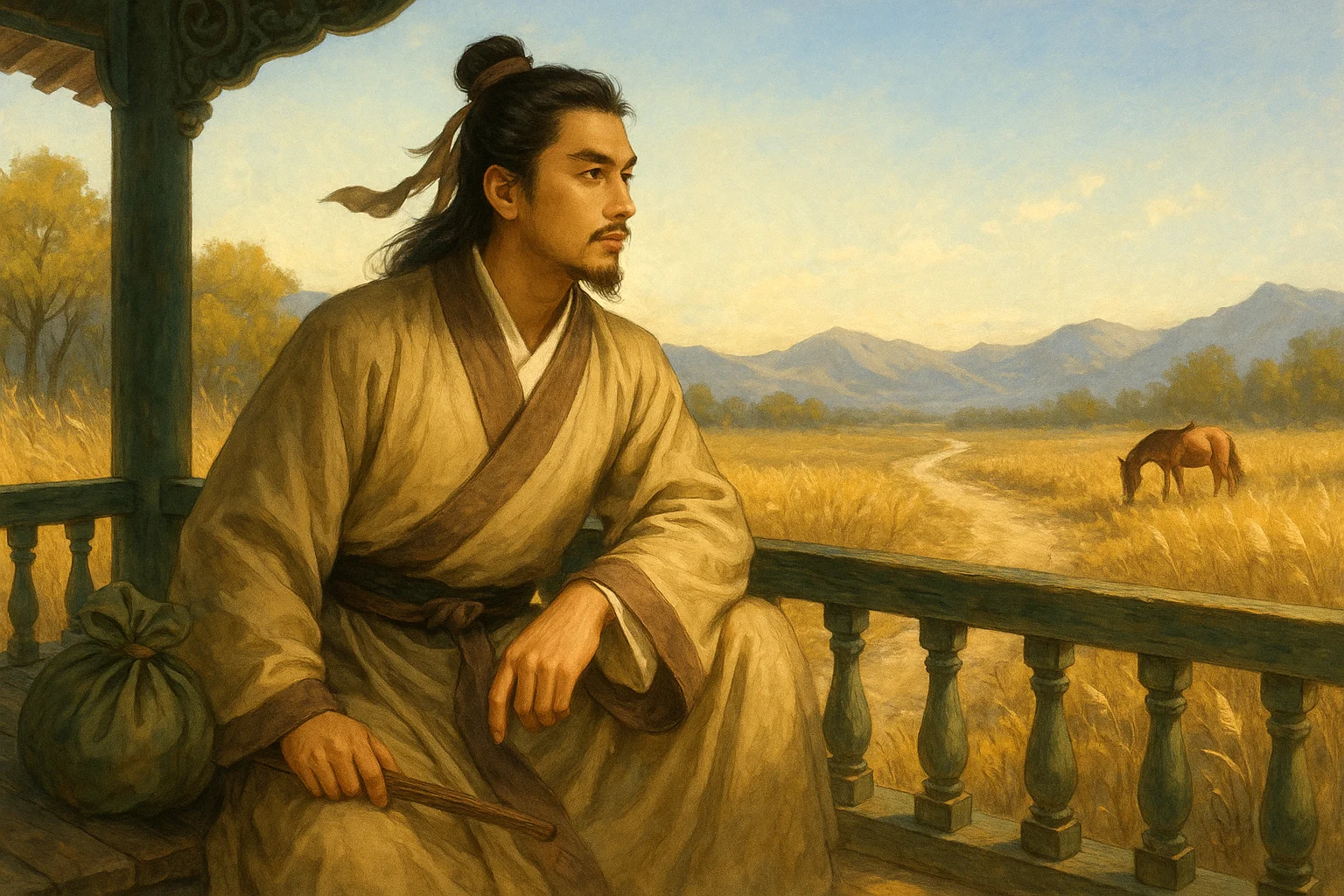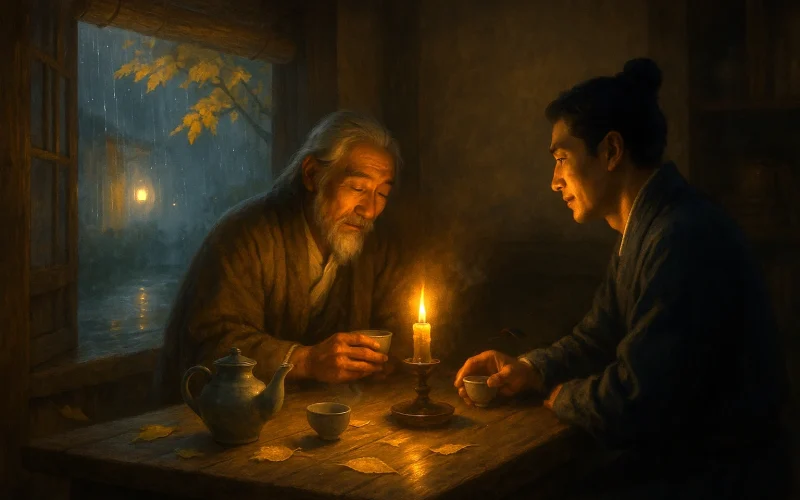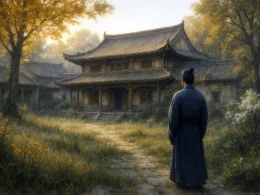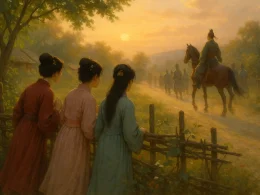Long divided by river and sea,
For years we two have failed to meet -
And suddenly to find you seems like a dream.
With a catch in the throat, we ask how old we are.
...Our single lamp shines, through cold and wet,
On a bamboo-thicket sheathed in rain;
But forgetting the sadness that will come with tomorrow,
Let us share the comfort of this farewell wine.
Original Poem
「云阳馆与韩绅宿别」
司空曙
故人江海别,几度隔山川。
乍见翻疑梦,相悲各问年。
孤灯寒照雨,深竹暗浮烟。
更有明朝恨,离杯惜共传。
Interpretation
This poem was composed by the poet during his travels, depicting the complex emotions of reuniting with an old friend after years of separation and facing yet another imminent parting. The verses reveal the delicate sentiment and profound tone characteristic of Dali-era poets, blending scene and emotion—expressing both the joy of reunion and the melancholy of departure.
First Couplet: "故人江海别,几度隔山川。"
Gù rén jiāng hǎi bié, jǐ dù gé shān chuān.
"Long ago, we parted by rivers and seas; / Since then, mountains and streams have kept us apart."
This couplet establishes the long separation between old friends, distant and rarely reunited due to vast lands and dividing mountains, setting a sorrowful tone for the entire poem.
Second Couplet: "乍见翻疑梦,相悲各问年。"
Zhà jiàn fān yí mèng, xiāng bēi gè wèn nián.
"Meeting again, I wonder if it's a dream; / In shared grief, we ask of each other's years."
It captures the dazed wonder of sudden reunion—both joyful and mournful—vividly portraying the complicated emotions of long-awaited reunion with heartfelt sincerity.
Third Couplet: "孤灯寒照雨,深竹暗浮烟。"
Gū dēng hán zhào yǔ, shēn zhú àn fú yān.
"A lone lamp chills the rain with its glow; / Deep bamboos veil drifting mist in shadow."
It depicts the scene of their conversation after reuniting—a cold, quiet, and misty atmosphere—enhancing the heavy sorrow of impending separation.
Fourth Couplet: "更有明朝恨,离杯惜共传。"
Gèng yǒu míng zhāo hèn, lí bēi xī gòng chuán.
"Yet greater grief awaits at dawn's light— / We pass the parting cup, treasuring this night."
Shifting to the sorrow of parting, it conveys that though the reunion is joyful, the imminent farewell intensifies their reluctance to part.
Holistic Appreciation
Though a farewell poem, it does not directly express parting sorrow. Instead, it begins with "long separation" and "reunion like a dream," progressing step by step—from the bewilderment of meeting, shared sighs, the lonely chill of night conversation, to the grief of morning departure—layering emotions with exquisite subtlety. In this transition from sorrow to joy and back to sorrow, the poet not only conveys the difficulty of reunions in turbulent times but also the profound weight of life's impermanent meetings and partings.
Artistic Merits
This poem excels in emotional depth, with natural structure and well-paced progression, blending scenery and psychological insight. Imagery like the "lone lamp," "cold rain," "deep bamboos," and "drifting mist" creates a uniquely desolate atmosphere. Particularly striking are the lines "Meeting again, I wonder if it's a dream; / In shared grief, we ask of each other's years," which masterfully capture the shock of reunion and the mingling of joy and sorrow.
Insights
Through the experience of reunion and parting, this poem reflects the impermanence of human connections and the preciousness of friendship amid life's hardships. Within its deep melancholy, we sense the enduring power of friendship across time, as well as the importance of cherishing the present and treasuring each meeting. Parting is an inevitable part of life, but with true affection, even brief reunions can warm the long years ahead.
Poem translator
Kiang Kanghu
About the poet

Sikong Shu (司空曙), c. 720 – c. 790, courtesy name Wenming, was a native of Guangping (present-day Yongnian County, Hebei Province). A renowned mid-Tang dynasty poet, he was one of the "Ten Literary Masters of the Dali Era," alongside Lu Lun, Qian Qi, Han Hong, Li Duan, and others. Though his life lacked illustrious achievements, his poetry—marked by genuine emotion in simplicity and profound contemplation in solitude—secured him a unique place in mid-Tang literary circles.












